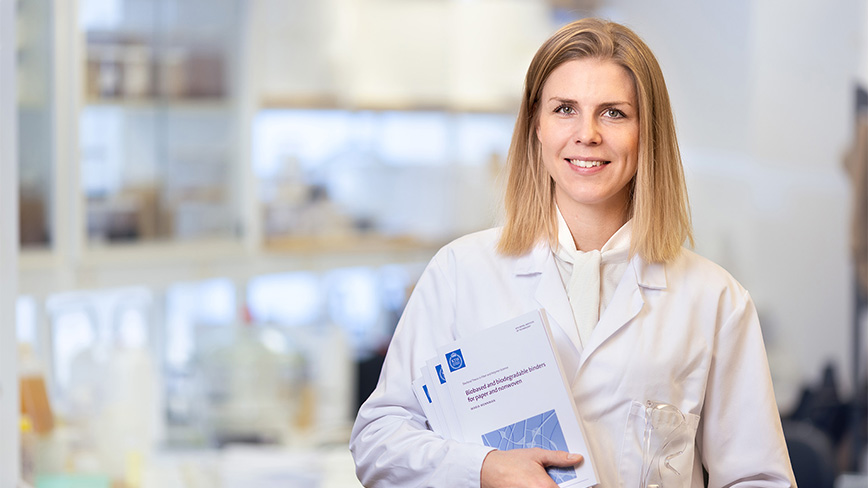She wants to replace fossil-based binders at an industrial level

Maria Wennman's thesis is about bio-based and biodegradable binders for paper and the textile material nonwoven, which can replace several types of the plastic-based binders currently used commercially.
“The new binders are based on residual streams from the food and agricultural industry,” says Maria Wennman.
Maria Wennman earned her master's degree in chemistry from KTH in 2012 and started working as a development engineer at OrganoClick. The company develops green technologies that replace plastics and fossil chemicals with bio-based alternatives.
"It was during my early years at KTH that I realised the significant problems that persistent chemicals and plastic waste have created for animals and nature. Even then, I felt that the great purpose of my life would be to do something about it.”
Industrial application
A few years later, Maria Wennman returned to KTH as an industrial doctoral student. Her research has focused on technologies that can be applied on an industrial scale to make a real difference.
“As an industrial doctoral student, there have been some challenges in combining work at the company with the doctoral programme. But with good planning and full speed ahead, it has gone better than expected.”
Maria Wennman now returns to her work as R&D manager at OrganoClick, where she will continue to apply her research in industry.
“With the help of the techniques studied in my PhD project, OrganoClick has been able to help its customers replace more than 1000 tonnes of fossil plastic in their products this year alone,” says Maria Wennman.
Text: Jon Lindhe
Photo: Hans-Erik Nygren
